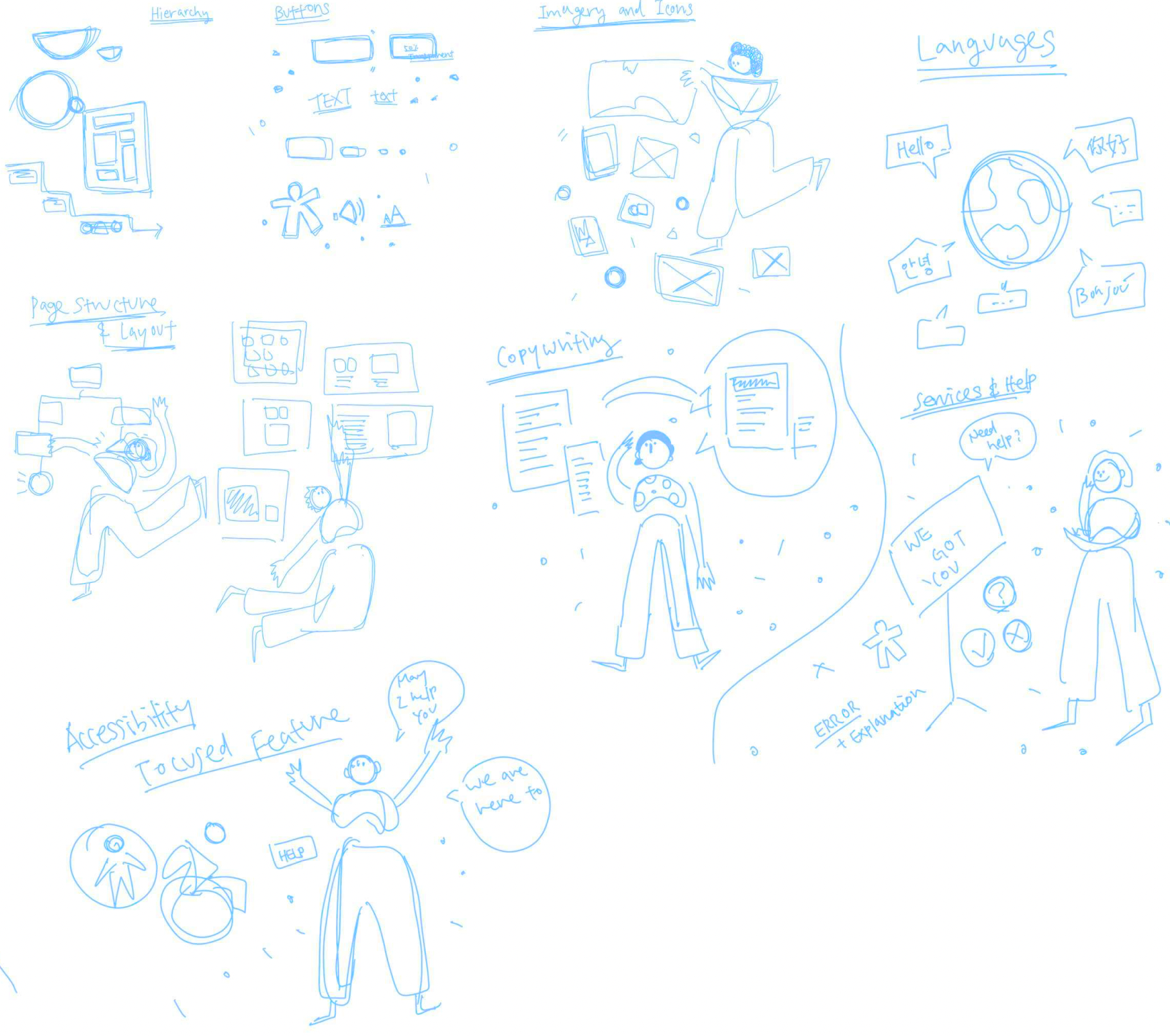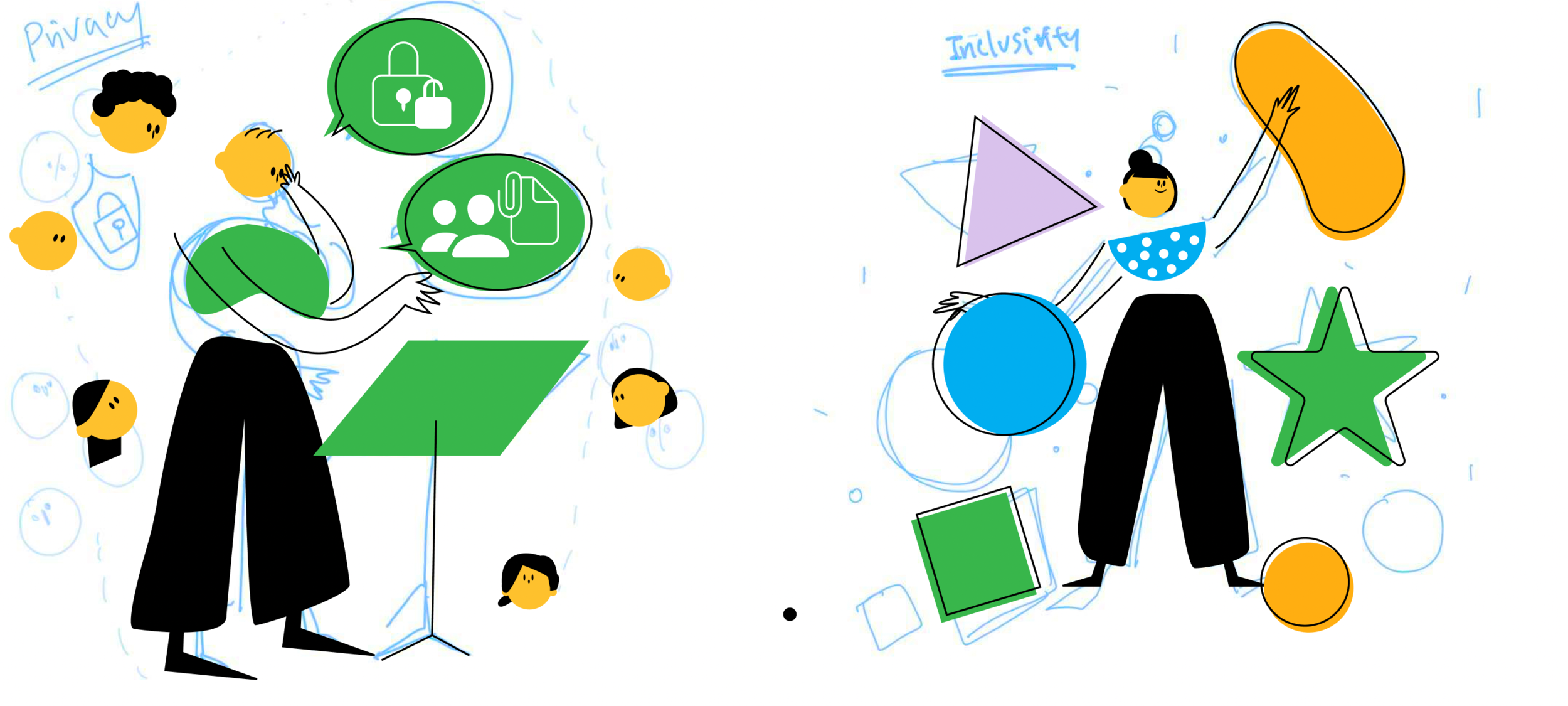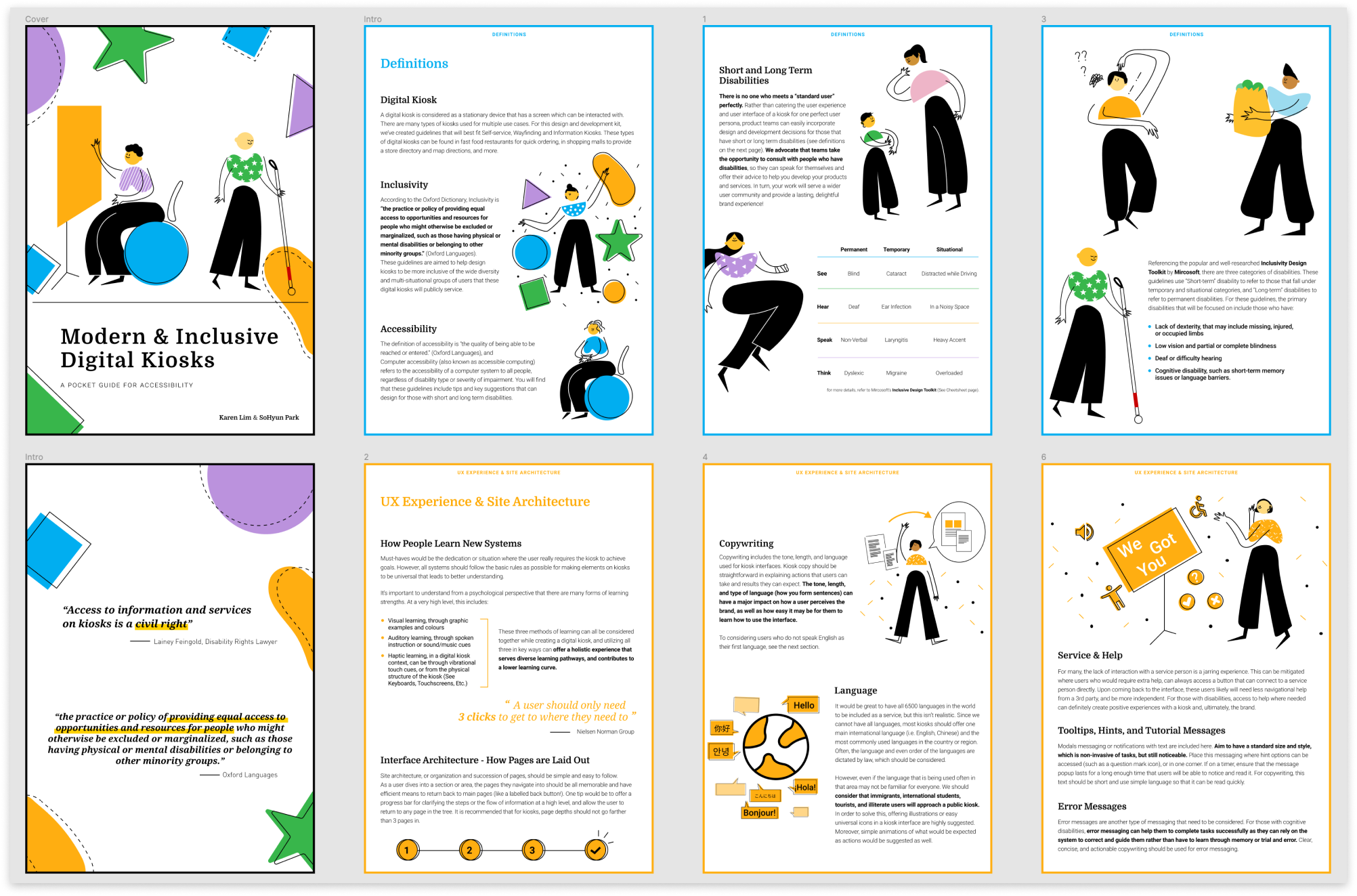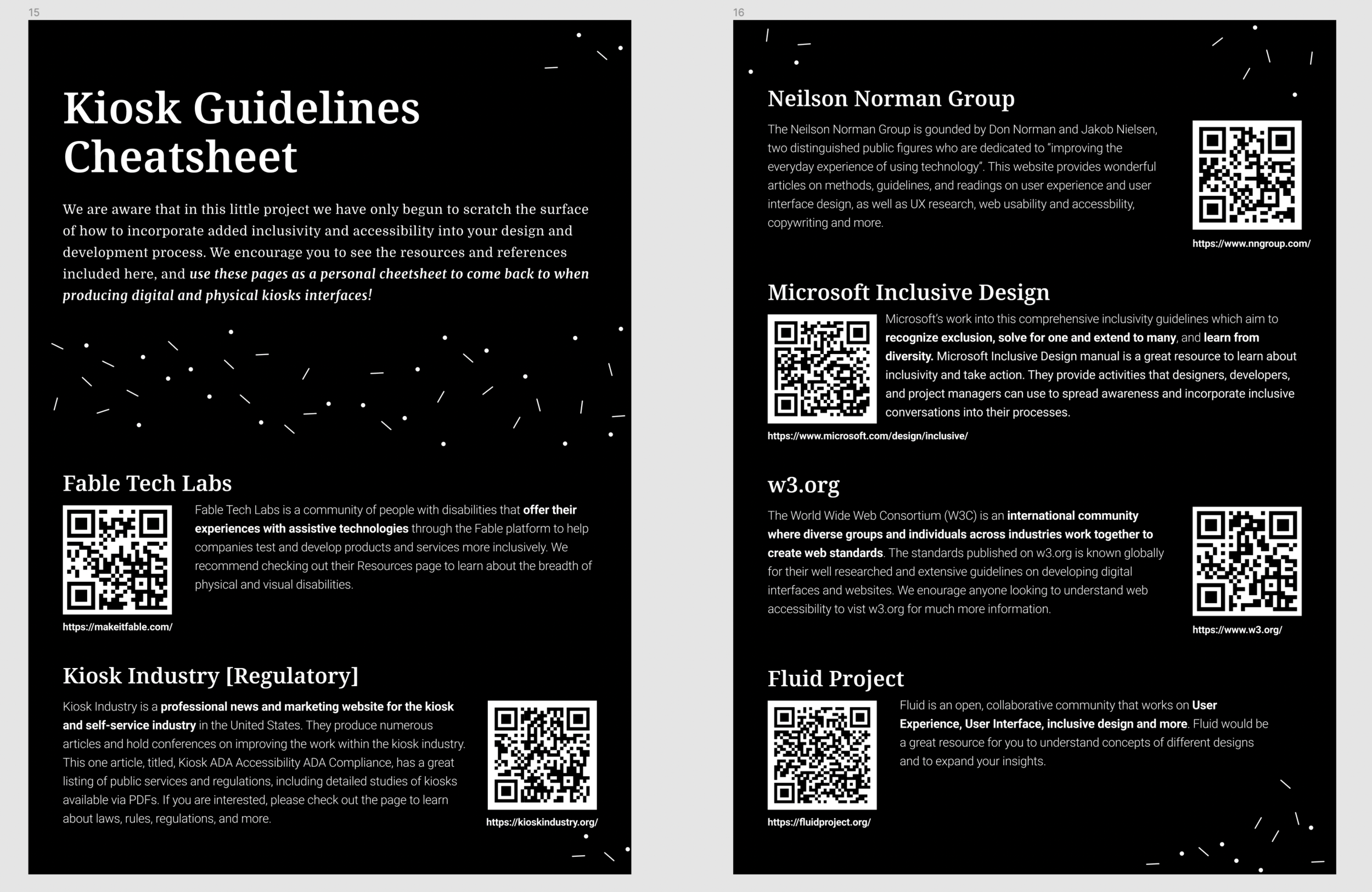Modern & Inclusive Digital Kiosks
A POCKET GUIDE FOR ACCESSIBILITYBrief
“Modern & Inclusive Digital Kiosks” introduces a holistic understanding of accessibility and inclusivity, and provides a set of guidelines that dives into how one may develop and design digital kiosks. The resulting work is a compendium of research and best practices that are being concurrently developed in UX/UI Design and Technology focused companies, organizations, and academic institutions globally.
Links
View the Booklet
Role
Research, Content Writing, Illustration, Publishing Design
Tools
Illustrator, Figma, Google Docs
Teams
Karen Lim
Scope: Accessible Problem
According to Dabholkar & Spaid in their article, Service failure and recovery in using technology-based self-service: effects on user attributions and satisfaction, kiosks are currently a growing part of how technology integrates with our society’s daily lives, (Dabholkar & Spaid, 2012) and will likely continue to be widely used during and after the pandemic for social distancing issues as an extended benefit.
Our idea comes from the belief that there is a lack of inclusivity in both the development and use of our evolving kiosk interfaces, and that this rising technology excludes growing minority groups. We believe that research and effort can be made to better understand users with disabilities and how opportunities for solutions for them can serve the more significant majority.
We also have found that there is a lack of consumability, unity, and modern access to learning the educational material on existing accessibility guidelines for kiosks, resulting in key people such as developers, designers, and project managers being deterred from adopting these guidelines in their work. Our team’s goal is for product teams around the world to consider and integrate improved accessibility and inclusivity of people in the creation of their products and solutions.
Project process
We have also reached out to professionals and design groups for feedback rounds such as a senior UX Researcher from Samsung, a senior Project Manager of RBC, designers from the Business of Design guild from IDEO U, Developers, and even an Occupational Therapist to get their feedback. Looking at our work, they had offered positive reviews and suggestions for the expansion of our project!
We are happy to mention that they could see their teams utilizing our pocketbook as a reference not only for specifically kiosk-related projects but also to learn and remind them to consider different users in their process in every work task.
Business Potential
Published as a purchasable pocketbook for any individual or team to use, physically or digitally. This can also be offered for use as supporting material for consultants, company workshops, or new ventures into improved company design and development best practices.
Collaborate or get sponsored by a publisher that is willing to have our pocketbook sold along with their accessible design-related books. Already considering approaching ties within IDEO U, the Interaction Design Foundation, and others.
Scale our project up by creating a self-serve educational website like Microsoft’s Inclusive Toolkit (https://www.microsoft.com/design/inclusive/) that is open for everyone who is interested. We may also create expansions such as a workshop plan and additional materials for students and working professionals to learn and get engaged with adopting these guidelines via activities.
Feel free to reach out to me! I am a friendly designer / innovator. I don’t bite ;)
Rapid Iteration + Research
For 15 weeks, we have done researches on end-users, case studies, analyzing problems, multiple design sprints and creation of booklet design starting from low to high fidelity.










